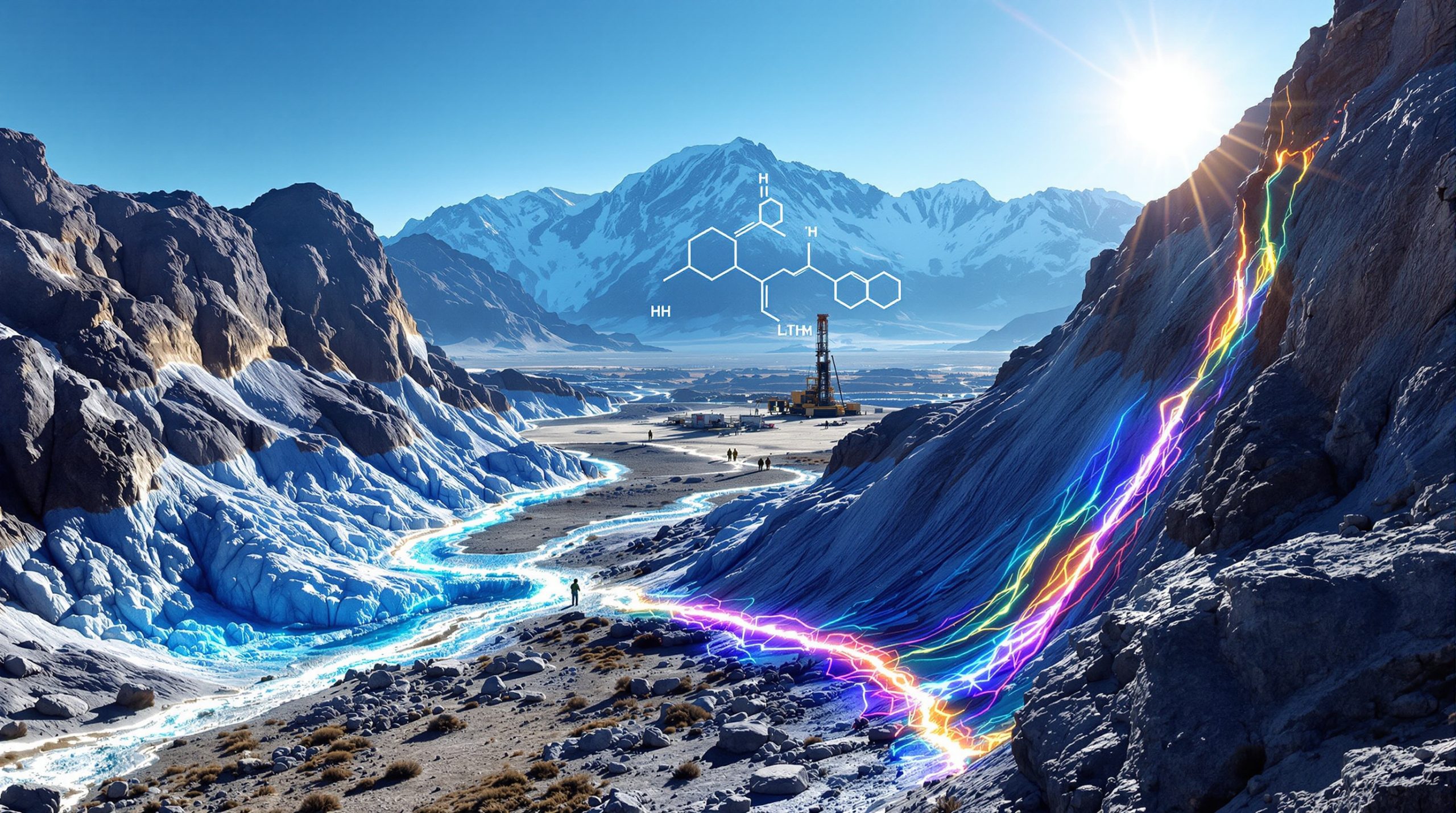How Will Mali's New Russian Partnership Impact Gold Exports?
Mali's government is establishing a state-controlled gold refinery in partnership with Russian company Yadran to revolutionize its precious metals sector. This strategic alliance aims to end raw gold exports and maximize revenue from the country's valuable natural resources. The joint venture, named SOROMA-SA, will be majority-owned by Mali (62%) with Yadran holding the remaining 38% stake.
According to Mali's Ministry of Mines, this partnership represents a fundamental shift in how the nation manages its gold resources, which have historically been exported in raw form, limiting the country's ability to capture the full value of its mineral wealth.
The Scale and Scope of the New Refinery
The planned facility will be constructed on a five-hectare site near Bamako's international airport, strategically positioned for both domestic processing and international export. With an ambitious annual processing capacity of 200 metric tons, the refinery will quadruple Mali's current gold output of approximately 50 tons per year.
This massive capacity expansion signals Mali's intention to not only process its own gold production but potentially serve as a regional refining hub for neighboring West African countries. The location near Bamako's international airport provides crucial logistical advantages for secure transportation of both raw materials and finished products.
"This refinery represents a transformative step for Mali's mining sector, enabling us to process our gold domestically rather than exporting raw materials at significantly lower values," noted an official from Mali's Ministry of Mines.
The facility's strategic location and substantial processing capacity position Mali to potentially become West Africa's premier gold refining center, with the current regional refining capacity standing at approximately 300 tons per year according to the United Nations Economic Commission for Africa (2024).
Why Is Mali Partnering with Russia Instead of Western Companies?
Shifting Geopolitical Alignments in West Africa
Mali's decision to partner with Russia's Yadran reflects a broader geopolitical shift occurring across West Africa. The region has experienced significant political changes in recent years, with military governments in Mali, Burkina Faso, and Niger increasingly distancing themselves from traditional Western allies while strengthening ties with Russia and China.
This realignment began following Mali's 2021 military coup, after which Western mining investments in the country declined by approximately 60% according to Fitch Solutions (2024). The vacuum created by this Western disengagement has increasingly been filled by Russian companies seeking to expand their presence in resource-rich African nations.
Similar patterns have emerged across the region, with Rosatom securing uranium deals in Burkina Faso (2024) and Niger establishing security partnerships with the Wagner Group (2023), as reported by Reuters.
Certification Challenges and Market Access
A key obstacle facing Mali's existing gold refineries has been their inability to secure international certifications, such as those from the London Bullion Market Association (LBMA). Without these certifications, Mali's processed gold faces limited access to global markets, forcing miners to export raw gold for processing abroad.
According to a senior Mines Ministry official speaking on condition of anonymity, "Yadran will play a crucial role in helping Mali secure these vital certifications, potentially opening doors to premium international markets that have previously remained closed to locally refined Malian gold."
Yadran brings substantial expertise in this area, operating LBMA-certified refineries in Kazakhstan according to the company's corporate website (2024). This experience in navigating the stringent LBMA certification process—which requires adherence to ethical sourcing, financial stability, and production consistency—provides Mali with a critical advantage compared to partnerships with less experienced operators.
How Does This Partnership Fit Into Mali's Broader Mining Strategy?
Revised Mining Code and Increased State Control
Mali's partnership with Yadran aligns with its recently revised mining code, which significantly increases state involvement in the mining sector through:
- Higher state ownership stakes in mining operations (increased to 20% from the previous 10%)
- Increased gold royalty payments (raised to 12% from 6%)
- Mandatory domestic gold processing requirements
- Enhanced environmental protection standards
- Improved community development provisions
These policy changes mirror similar resource nationalism trends in neighboring countries like Burkina Faso, Niger, and Guinea, all of which have implemented measures to increase state control over natural resources while reducing Western influence in their mining sectors.
Economy Minister Alousseni Sanou emphasized that "the partnership aligns with Mali's revised mining code to maximize resource returns" for the nation's citizens rather than foreign corporations (Mining Weekly, June 13, 2025).
Economic Benefits and Value Addition
By processing gold domestically rather than exporting raw materials, Mali aims to:
- Capture more value from its mineral resources
- Create additional jobs in the refining sector (projected 500-700 direct jobs according to Mali's Ministry of Labor)
- Develop technical expertise in precious metals processing
- Reduce dependency on foreign refineries
- Potentially increase tax revenue through greater oversight of production (estimated $120M annually in value-added taxes according to World Bank projections)
The establishment of this refinery could trigger broader industrial development in Mali's mining sector, potentially attracting ancillary businesses and technical expertise to the country. Similar value-addition strategies have proven successful in other African nations, such as Ghana, where LBMA-certified refiners like the Ghana Gold Refinery boosted export value by approximately 15% according to the World Gold Council (2024).
What Challenges Does the Mali-Russia Gold Partnership Face?
International Market Access Concerns
Despite the partnership's ambitious goals, several challenges remain:
-
Certification hurdles: Obtaining recognized international certifications like LBMA approval requires meeting stringent standards for quality, consistency, and ethical sourcing. An LBMA spokesperson noted that "certification requires audits of conflict-free sourcing and environmental compliance" (LBMA, 2024).
-
Sanctions considerations: Western sanctions against Russian entities could potentially complicate international transactions involving Russian-affiliated gold refineries. Yadran subsidiaries have been under EU sanctions since 2023 (EU Council Decision 2023/1781).
-
Reputation management: Ensuring internationally recognized responsible sourcing practices will be essential for market acceptance. This includes demonstrating conflict-free mineral sourcing and adherence to environmental and social governance standards.
-
Market competition: Competing with established refineries in South Africa, Switzerland, and the United Arab Emirates that already dominate the African gold refining market.
Technical and Operational Considerations
The success of the refinery will depend on:
-
Infrastructure development: Ensuring reliable power, water, and transportation infrastructure to support large-scale refining operations. Bamako's power supply currently averages only 8 hours per day according to the African Development Bank (2024), making reliable electricity a significant concern.
-
Technical expertise: Developing local technical capacity to operate sophisticated refining equipment, which will require substantial training programs and knowledge transfer.
-
Security considerations: Protecting valuable gold shipments and refined products in a region with security challenges. Mali's gold convoys currently face 10-15% loss from theft according to a UN Panel of Experts Report (2024).
"The greatest challenge isn't building the refinery—it's ensuring consistent operation in an environment with infrastructure limitations and security concerns," noted a mining sector analyst familiar with West African operations.
The cautionary example of Sudan's refinery, which failed its LBMA certification bid in 2022 due to inconsistent power supply, highlights the importance of addressing these infrastructure challenges before commencing operations.
When Will the Mali-Russia Gold Refinery Begin Operations?
According to Mali's mines ministry spokesperson, the country's military leader Assimi Goita will officially commission the refinery's construction later in June 2025. While no specific timeline for completion has been announced, the project appears to be moving forward rapidly following the National Transition Council's approval of the shareholding structure.
Based on comparable projects in the region, such as Ghana's 100-ton capacity refinery which took three years to complete (Gold Fields, 2023), a realistic timeline might see Mali's facility operational by 2028-2029, assuming no major political or funding disruptions.
Several factors could influence the completion timeline:
- Securing financing for construction and equipment
- Importing specialized refining technology
- Training technical personnel
- Developing supporting infrastructure
- Addressing potential security concerns
The ambitious scale of the project suggests a phased implementation approach may be necessary, potentially beginning with a smaller processing capacity before expanding to the full 200-ton annual capacity.
How Does This Partnership Compare to Other African Gold Producing Nations?
Regional Trends in Gold Processing
Mali's move toward domestic gold refining reflects a growing trend across Africa's gold-producing nations:
| Country | Current Refining Capacity | Certification Status | Key Partners |
|---|---|---|---|
| Mali | Limited (lacking certification) | Seeking certification through Russian partnership | Russia (Yadran) |
| Ghana | 180 tons/year | 2 LBMA certified refineries | Various international partners |
| South Africa | 450 tons/year | 5 LBMA certified facilities | Primarily domestic companies |
| Tanzania | 50 tons/year (Twiga Refinery) | Mixed certification status | Chinese investors |
| Burkina Faso | Limited capacity | Few certified facilities | Increasing Russian interest |
Ghana's success in establishing LBMA-certified refineries has enabled the country to capture additional value from its gold production. According to the Ghana Minerals Commission (2024), these facilities have significantly increased the country's export revenues while creating high-skilled employment opportunities.
South Africa remains the continent's refining powerhouse with 450 tons/year capacity across five LBMA-certified facilities according to the South African Reserve Bank (2024). The country's long-established Rand Refinery processes gold from across the continent.
Impact on Regional Gold Markets
Mali's significant expansion of refining capacity could potentially:
- Create competition for existing regional refineries
- Influence pricing dynamics for gold processing services
- Accelerate similar partnerships in neighboring countries
- Shift traditional gold supply chains away from Western-dominated networks
Tanzania's model of state ownership combined with foreign investment expertise presents an interesting comparison. The state-owned Twiga Refinery (50 tons/year) partnered with Chinese investors to secure both capital and technical expertise (Tanzania Mining Review, 2024).
"West Africa is rapidly moving toward vertical integration in its gold sector, with countries no longer content to simply export raw materials," explained a regional mining expert with experience across multiple African markets.
This shift toward domestic processing aligns with broader continental trends embodied in the African Continental Free Trade Area (AfCFTA), which emphasizes value addition and industrialization across African economies.
What Does This Mean for International Mining Companies in Mali?
Adapting to New Requirements
International mining companies operating in Mali will need to adapt to the country's new mining code requirements, including:
- Adjusting to higher state ownership stakes (increased to 20%)
- Planning for domestic processing of gold production
- Potentially renegotiating existing mining agreements
- Navigating new royalty payment structures (increased to 12%)
Barrick Gold, which operates the Loulo-Gounkoto mine producing approximately 15% of Mali's gold output according to their Q1 2025 Report, will need to evaluate how these changes affect their operations and long-term investment plans in the country.
Strategic Responses from Western Mining Firms
Western mining companies may respond to Mali's policy shifts by:
- Seeking clarification on implementation timelines and requirements
- Evaluating joint venture opportunities with the new refinery
- Assessing the financial impact of increased state participation
- Developing strategies to maintain operational viability under new regulations
The experience of Endeavour Mining, which renegotiated its terms in neighboring Burkina Faso in 2023 following similar resource nationalism measures, provides a potential blueprint for companies navigating Mali's changing regulatory landscape.
Companies may also consider:
- Increased investment in community development to strengthen local relationships
- Enhanced environmental management to meet stricter standards
- Greater emphasis on local workforce development
- Exploration of value-added processing opportunities
Disclaimer: The implementation timeline and specific impact on international mining industry innovation remain subject to change as Mali's government provides further details on the implementation of its revised mining code.
FAQ: Mali-Russia Gold Refinery Partnership
How much gold does Mali currently produce annually?
Mali currently produces approximately 50 metric tons of gold annually, making it Africa's second-largest gold producer after Ghana. This figure has been verified by both the IMF (2024) and Mali's Ministry of Mines (2025).
Who will own the new SOROMA-SA refinery?
The Malian state will hold a 62% majority stake in the refinery, while Russian company Yadran will own the remaining 38%.
Why is international certification important for gold refineries?
International certifications like LBMA approval are essential for accessing premium global markets and achieving the best prices for refined gold. Without certification, refineries face limited market access and potential price discounts. LBMA certification requires adherence to strict standards for responsible sourcing, quality consistency, and ethical business practices.
How does this partnership reflect broader trends in West Africa?
This partnership reflects a growing trend of resource nationalism and geopolitical realignment across West Africa, with countries increasingly seeking greater control over natural resources while pivoting from traditional Western partners toward Russia and China. Similar policy shifts have occurred in Burkina Faso, Niger, and Guinea since 2021.
What capacity will the new refinery have?
The planned refinery will have an annual processing capacity of 200 metric tons, approximately four times Mali's current gold production of 50 tons per year. This suggests Mali aims to process gold from neighboring countries as well.
Further Exploration:
Readers interested in learning more about Mali's gold mining sector and international partnerships can also explore related educational content about mineral beneficiation insights and gold market trends. Additionally, understanding mining consolidation trends can provide valuable context for the Mali-Russia partnership within the broader African mining landscape.
Want to Stay Ahead of Major ASX Gold Discoveries?
Discovery Alert's proprietary Discovery IQ model provides real-time notifications on significant ASX gold discoveries before they make mainstream headlines, helping investors identify actionable opportunities ahead of the broader market. Explore historical gold discovery returns and position yourself for the next major find at https://discoveryalert.com.au/discoveries/.




